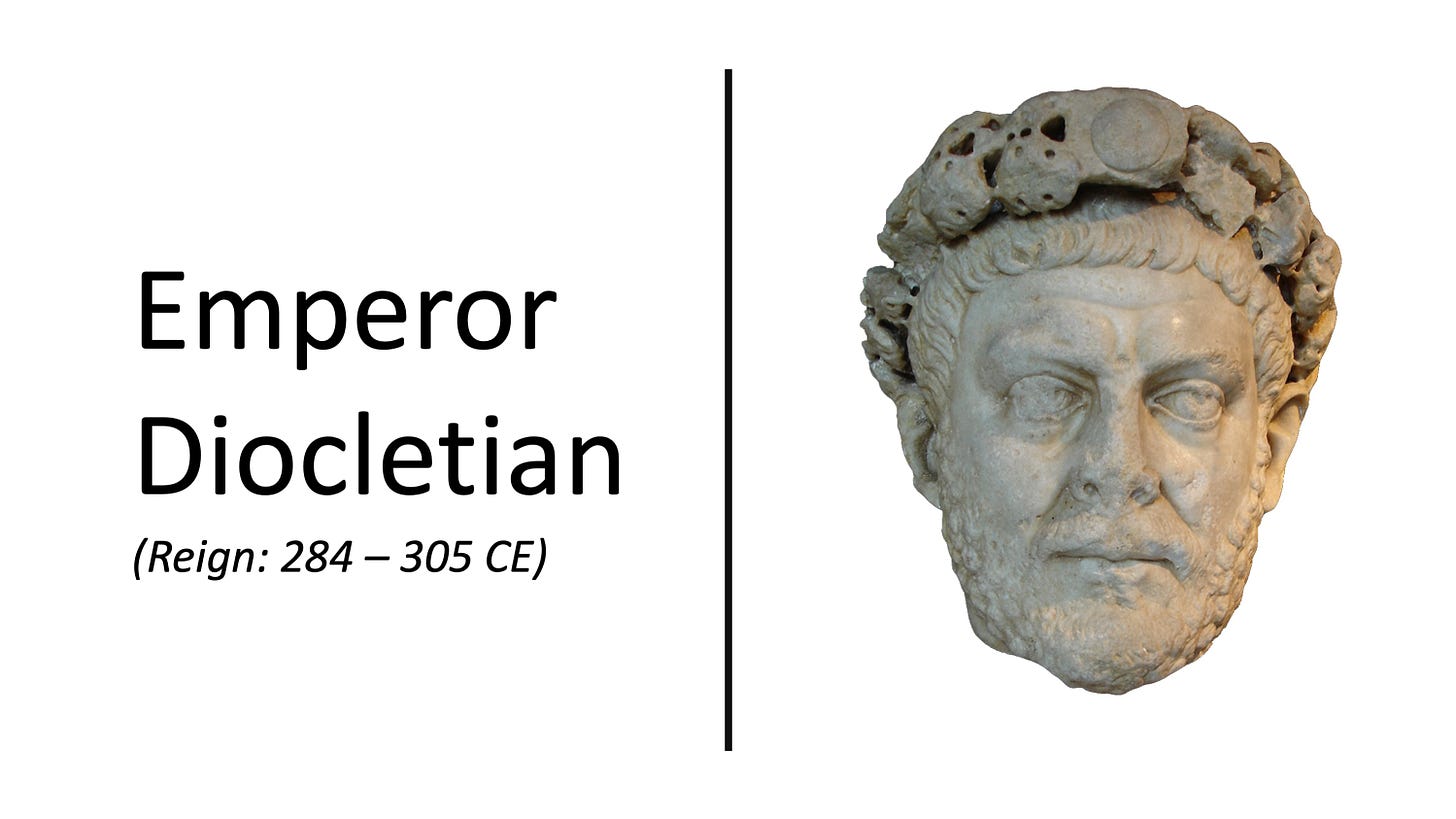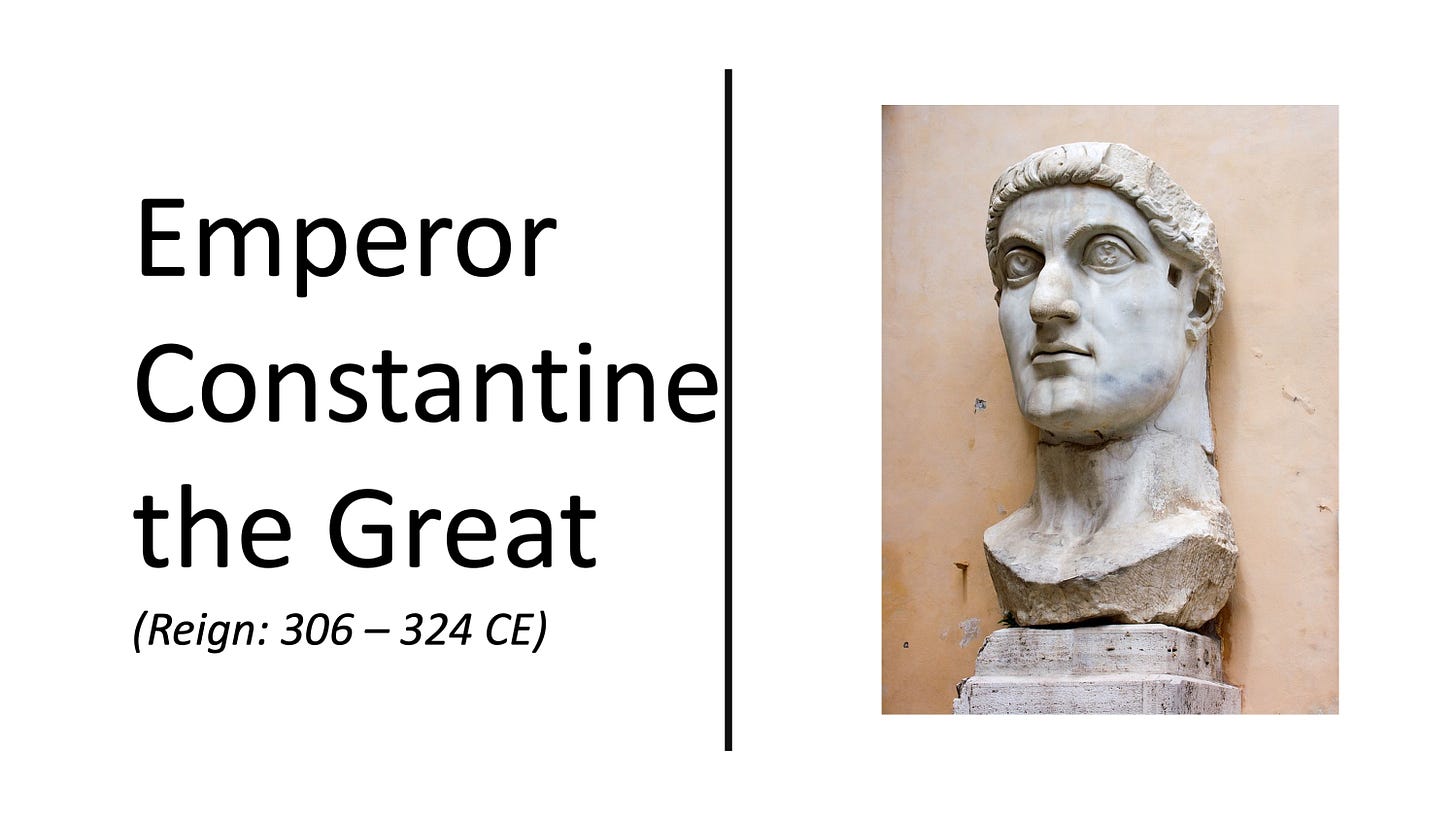The Bible #6: Church gets a Sword ... and a Bible [EP-102]
In my last reflection on the Bible, I took some time to catch us up from when this series took an extended break at the end of last year. Something that I want to keep in our minds during this first part of a long series on the Bible is a basic flow of events:Before getting into the Bible directly, I’ve attempted to outline some historical factors that give us an important insight: the Bible is not the center of our faith, Jesus is the center (in harmony with the Father and Spirit, of course). Simply put, the question I’ve invited us to ask is: Why the Bible?Well, for the earliest followers of Jesus, the Bible was the written witness of how Jesus changed everything. Even before it was a completed Bible—in the sense that it was systematically put together—the stories of Jesus and the writings of early leaders like Paul and Peter, rooted the Movement in moments of suffering. It was central, but not the center. The Jesus Event and more specifically, Jesus himself, provided the center. He had risen from a grave. Resurrection is real. Even death won’t ultimately win.
Catch Up….
Podcast Version of this Newsletter
Last time, we looked at the tribulation the Jesus Movement faced for a season under Decius. Fortunately, his reign was short. Things seemed to calm down a bit until the latter part of the reign of Dioletian (284-305 CE). At this time, power is shared so technically Diocletian was co-emperor. In 299 CE, the story goes that the emperors in the imperial house took part in a sacrifice that was meant to predict the future by reading the entrails of the animals. (This was common in Greek and Roman religions).It failed.This sacrifice-gone-bad† led them to conclude that the gods were angry due to the growing presence of Christians. By 302, Diocletian ordered that the small Christian-Buddhist-Zorastrian sect (oversimplified description) referred to as Manicheans be eliminated. Their leader was burned to death and low-status members executed by the sword. The so-called high status members were forced into slavery in rock quarries.In winter 303, Diocletian issued an official edit against Christianity. It ordered the destruction of Scriptures [documents not full bibles!], worship buildings, and martyrdoms. Christianity would keep spreading. Fortunately, the persecution was localized mostly. Many governors were lenient and most common people were not in favor of mistreating the Christians.This lasted until Constantine the Great. He would offer the church both a sword and a Bible.
In 299 CE, the story goes that the emperors in the imperial house took part in a sacrifice that was meant to predict the future by reading the entrails of the animals. (This was common in Greek and Roman religions).It failed.This sacrifice-gone-bad† led them to conclude that the gods were angry due to the growing presence of Christians. By 302, Diocletian ordered that the small Christian-Buddhist-Zorastrian sect (oversimplified description) referred to as Manicheans be eliminated. Their leader was burned to death and low-status members executed by the sword. The so-called high status members were forced into slavery in rock quarries.In winter 303, Diocletian issued an official edit against Christianity. It ordered the destruction of Scriptures [documents not full bibles!], worship buildings, and martyrdoms. Christianity would keep spreading. Fortunately, the persecution was localized mostly. Many governors were lenient and most common people were not in favor of mistreating the Christians.This lasted until Constantine the Great. He would offer the church both a sword and a Bible. I know. Some of you hear Constantine and think: you mean that guy who The Da Vinci Code exposed as the real reason we only have 27 specific documents in the New Testament. That’s silly conspiracy theory stuff that has been demonstrated over and again as ahistorical malarkey.
I know. Some of you hear Constantine and think: you mean that guy who The Da Vinci Code exposed as the real reason we only have 27 specific documents in the New Testament. That’s silly conspiracy theory stuff that has been demonstrated over and again as ahistorical malarkey.

